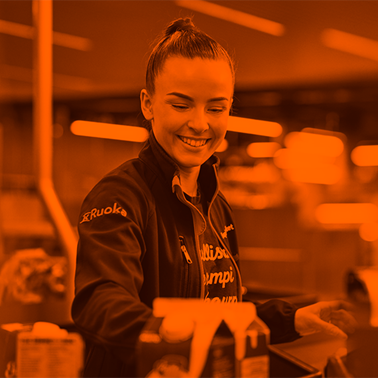Authorities in Denmark have approved Kesko’s acquisition of the Danish builders’ merchant CF Petersen & Søn A/S. The authority approval was not subject to any conditions. Kesko estimates that the acquisition will be completed on 30 April 2025.

All own brand Pirkka and K-Menu chocolate and cocoa products in our grocery stores now of sustainable origin

Cocoa is the main ingredient in chocolate. It is cultivated in some of the poorest regions in the world. Nearly 70% of all cocoa is produced in West Africa, mainly on small family plantations. Most cocoa is consumed in western countries, where it is used especially to make chocolate.
Cocoa is one of the ingredients where production carries a high risk of human rights and environmental violations.
“We see our mission as supporting our customers in making sustainable choices in our stores. As stated in K Group’s Cocoa Policy, all cocoa and chocolate used in our own brand Pirkka and K-Menu products is now 100% of sustainable origin. Our next aim is that the cocoa used in our other own brand products will be of sustainable origin by the end of 2025,” says Matti Kalervo, Kesko’s Vice President of Corporate Responsibility.
Certification systems promote sustainable cocoa production
K Group accepts the Fairtrade and UTZ certificates and the ISO 34101 Sustainable and traceable cocoa standard as certifications for cocoa.
Third-party certifications can be used to prove that cocoa production methods are monitored and developed. The certification systems enable impacting conditions locally, for example, through training provided to the farmers.
“Working conditions can be improved, for example, by teaching safe working methods and addressing the use of child labour. When farmers are trained on more sustainable cultivation methods, their crops grow, thus enabling better compensation,” says Kalervo.
Certification systems also enable training on ways for the farmers to mitigate the impacts of climate change and improve biodiversity.
“Climate change poses a threat to cocoa cultivation, as the plants cannot withstand very high temperatures. The impacts of climate change can be mitigated by planting shade trees on cocoa plantations to protect the plants from the effects of heat and aridity.”
 YES
YES
 NO
NO













